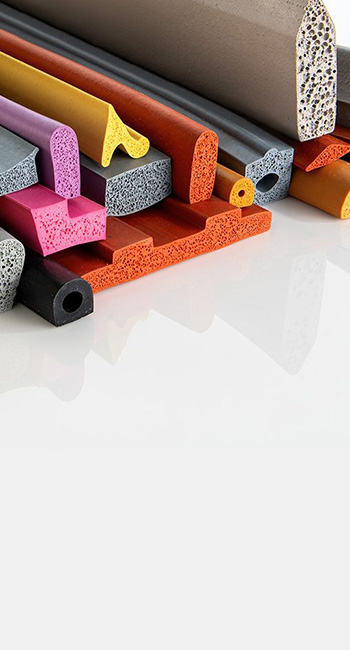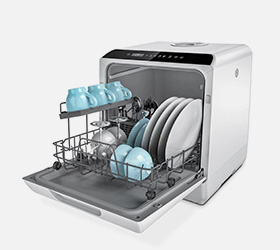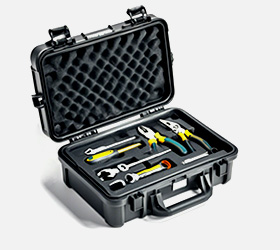Rubber Tubing vs. Plastic Tubing: Which Is More Effective for Your Application?
Choosing the right tubing material is crucial for ensuring long-term performance, safety, and cost-efficiency. Whether you're working in industrial manufacturing, automotive, liquid cooling, or food-grade applications, you’ll encounter the debate: rubber tubing vs. plastic tubing. Which one truly delivers better value?
1. Rubber Tubing vs. Plastic Tubing: Core Material Differences
- Rubber Tubing – Typically made from EPDM, NBR, or silicone, rubber tubing is known for its elasticity, resistance to heat, pressure, and weathering.
- Plastic Tubing – Usually made from PVC or polyurethane, plastic tubing is lightweight, cost-effective, and suitable for low-pressure or non-extreme environments.
Rubber tubing stands out for its excellent flexibility and durability across a wide temperature range. On the other hand, plastic tubing offers good chemical resistance and affordability, but tends to degrade faster in harsh conditions.
2. Technical Comparison: Performance You Can Measure
| Feature | Rubber Tubing | Plastic Tubing (PVC) |
|---|---|---|
| Temperature Resistance | -40°C to +150°C (depends on rubber type) | 0°C to +65°C |
| Flexibility | Retains flexibility in extreme cold | Becomes stiff and brittle at low temperatures |
| Durability | Highly resistant to aging, UV, cracking | Prone to cracking over time under stress |
| Pressure Tolerance | Supports higher internal pressures | Limited pressure rating |
| Cost | Higher upfront, lower long-term replacement cost | Lower initial cost, higher maintenance over time |
Rubber tubing outperforms plastic tubing in most demanding environments — especially where heat, pressure, and long-term reliability matter.
3. Application-Based Guidance: Which Tubing Fits Your Needs?
Choosing the right tubing should be based on the intended application:
- Automotive and Machinery: Rubber tubing is ideal for fuel lines, coolant systems, and vibration damping.
- PC Liquid Cooling: Choose low-evaporation rubber tubing to maintain system integrity over time.
- Dishwasher & Appliances: EPDM rubber seals provide temperature and steam resistance for door gaskets and connections.
- Lightweight Agricultural Use: Plastic (PVC) tubing may suffice for low-pressure irrigation or chemical transfer.
At RESRUB, we offer tubing solutions tailored to each of these categories with a focus on quality, performance, and customization.
4. Why Choose RESRUB for Your Rubber Tubing Needs?
RESRUB (Xingfeiyu Rubber & Plastic Products Co., Ltd.) is a leading manufacturer specializing in high-quality rubber tubing and sealing products since 2011.
✔ What Makes RESRUB Stand Out?
- ISO9001:2015 & IATF16949:2016 certified factory
- Custom materials: EPDM, NBR, Silicone, PVC, etc.
- Low-evaporation rubber tubing designed for PC cooling & industrial use
- Integrated in-house lab for testing pressure, chemical compatibility, and durability
- Quick prototyping and global export capabilities
Our 5,000㎡ factory is equipped with advanced extrusion and braiding lines, capable of producing over 60 million meters of rubber tubing annually.
[Image Placeholder: Rubber tubing production line at RESRUB factory]
Image prompt: Modern rubber extrusion production line with QC lab and workers in uniform
5. What You Might Be Wondering
❓ Will rubber tubing cost more than plastic?
While rubber tubing has a higher initial cost, it often requires fewer replacements, reducing the total cost of ownership over time.
❓ Is rubber tubing compatible with cleaning agents like alcohol?
We offer alcohol-resistant options like EPDM or FKM for industrial cleaning applications. Let our engineers help you choose the right formulation.
❓ Can I customize size, color, and hardness?
Absolutely. At RESRUB, we specialize in custom tubing production — from wall thickness to durometer and color coding — based on your specifications.
❓ Do you offer braided tubing?
Yes, our in-house braiding workshop supports polyester, aramid, and other reinforcements to enhance pressure resistance and strength.
























